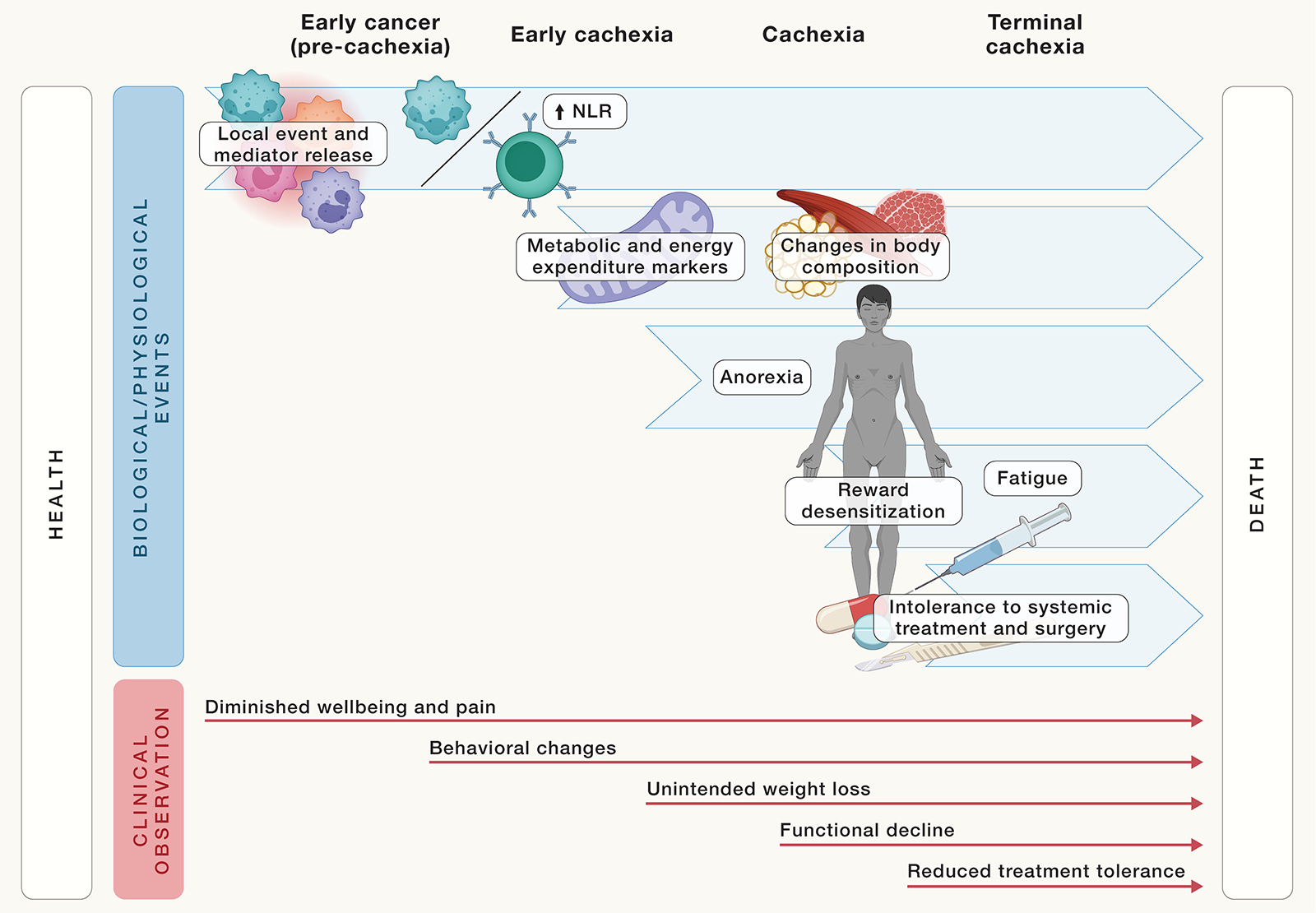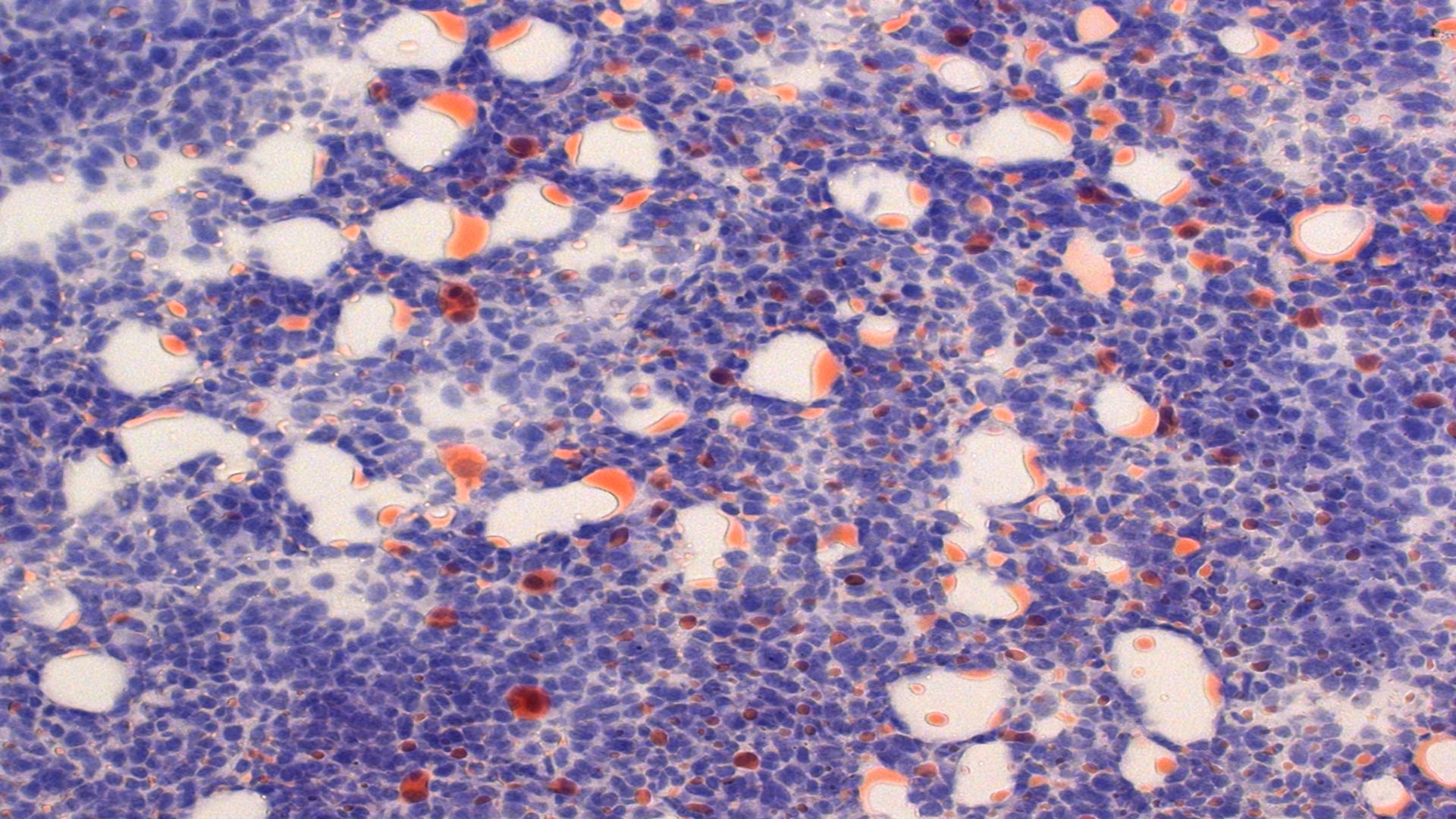Dietitians say a keto diet could help you lose up to 10% of your body weight. These high-fat, low-carb meal plans trick the body into burning its own fat. They could also help fight a variety of cancers by starving tumors of the glucose they need to grow. On the surface, this seems ideal. But research suggests these diets may have a deadly, unintended side effect for cancer patients.
In mice with pancreatic and colorectal cancer, keto accelerates a lethal wasting disease called cachexia. Patients and mice with cachexia experience loss of appetite, extreme weight loss, fatigue, and immune suppression. The disease has no effective treatment and contributes to about 2 million deaths per year.
“Cachexia results from a wound that doesn’t heal,” Cold Spring Harbor Laboratory (CSHL) Assistant Professor Tobias Janowitz says. “It’s very common in patients with progressive cancer. They become so weak they can no longer handle anti-cancer treatment. Everyday tasks become Herculean labors.”
Janowitz and CSHL Postdoc Miriam Ferrer are working to divorce keto’s cancer-fighting benefits from its lethal side effect. They found pairing keto with common drugs called corticosteroids prevented cachexia in mice with cancer. Their tumors shrank and the mice lived longer.
“Healthy mice also lose weight on keto, but their metabolism adapts and they plateau,” Janowitz explains. “Mice with cancer can’t adapt, because they can’t make enough of a hormone called corticosterone that helps regulate keto’s effects. They don’t stop losing weight.”

Keto causes toxic lipid byproducts to accumulate in and kill cancer cells by a process called ferroptosis. This slows tumor growth but also causes early-onset cachexia. When researchers replaced the depleted hormone with a corticosteroid, keto still shrank tumors but didn’t kickstart cachexia.
“Cancer is a whole-body disease. It reprograms normal biological processes to help it grow,” Ferrer says. “Because of this reprogramming, mice can’t use the nutrients from a keto diet, and waste away. But with the steroid, they did much better. They lived longer than with any other treatment we tried.”
Janowitz and Ferrer are part of an international Cancer Grand Challenges effort taking on cancer cachexia. They recently published an authoritative overview of the condition. The team is now working to fine-tune corticosteroid timing and dosage to widen the window for effective cancer therapies in combination with keto.
“We want to push back against cancer even harder, so it grows slower still,” Janowitz says. “If we can broaden this effect, make the treatment more efficient, we can ultimately benefit patients and improve cancer therapeutics.”
Written by: Nick Wurm, Communications Specialist | wurm@cshl.edu | 516-367-5940
Funding
“La Caixa” Foundation, MRC Cancer Unit, Cancer Grand Challenges, Cancer Research UK, The Mark Foundation for Cancer Research, Cold Spring Harbor Laboratory, CSHL Cancer Center, National Institutes of Health, CK Hutchison Holdings Limited, University of Cambridge, The Atlantic Philanthropies, Medical Research Council
Citation
Ferrer, M., et al., “Ketogenic diet promotes tumor ferroptosis but induces relative corticosterone deficiency that accelerates cachexia”, Cell Metabolism, June 12, 2023. DOI: 10.1016/j.cmet.2023.05.008
Principal Investigator

Tobias Janowitz
Associate Professor
Cancer Center Program Co-Leader
M.D., Ph.D., University of Cambridge, UK, 2007
